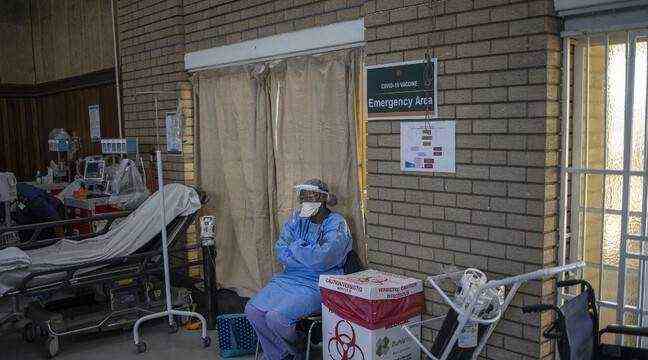Vaccine aid for poor countries set to accelerate in the coming months – Michele Spatari / AFP
G7 countries and members of the European Union would be able to give more than 150 million doses of anti-Covid vaccines to underprivileged countries, in an attempt to partially bridge the vaccine inequality in the face of the pandemic, says the ‘Unicef this Monday.
This number could be reached if the group of the seven richest countries in the world – whose leaders meet in June at the top in England – and members of the European Union share only 20% of the stocks at their disposal in June, July and August, according to a study conducted by Airfinity, which specializes in particular in the analysis of scientific data and financed by the British branch of Unicef.
190 million missing doses
“And they could do it while still fulfilling their commitments in terms of vaccination of their own population”, underlines Henrietta Fore, the director general of the UN agency. Anti-Covid vaccines continue to be sorely lacking, for lack of sufficient production and the international Covax system, set up to try to prevent rich countries from grabbing most of the precious doses, is very far from the account of doses he thought he could dispense.
In June, approximately 190 million doses will be missing from the Covax system – set up by the Vaccine Alliance (Gavi), the WHO but also the Cepi (Coalition for innovations in epidemic preparedness) – compared to initially planned volumes. Unicef - whose expertise in the field of vaccination is unparalleled – is responsible for distribution.
A vaccine shortage
India was due to provide the vast majority of vaccine doses to Covax this year, but the explosion of the pandemic in the country has prompted authorities to ban exports of serum for use there. As a result, by the end of May, 140 million doses will be missed for Covax and another 50 million in June. The shortage of vaccines and the lack of funds further add to the difficulties.
While waiting for more lasting measures to significantly increase production, “immediately sharing excess doses is a minimum, essential and emergency measure, which we need immediately,” said the press release. The United States has 60 million doses of AstraZeneca vaccine – a serum which after having often hit the headlines sometimes arouses mistrust – and has indicated that it wants to distribute them, France for its part has announced a donation of 500,000 doses to Covax, Sweden 1 million and Switzerland is considering giving as much.
0.2% of the population of poor countries vaccinated
For the time being, according to a study commissioned by Covax, a third of the populations of the richest countries have already had at least a first dose while for poor countries this represents only 0.2%. A gap, which the boss of the WHO, Tedros Adhanom Ghebreyesus, considers unfair to the point that he asked the countries on Friday to give up immunizing children and adolescents – less inclined so far to develop serious forms of Covid – to make their doses available to Covax.
For supporters of sharing, this is not just a moral imperative for poor countries to be able to immunize their health workers and their most vulnerable populations. A strong circulation of the virus anywhere, for lack of immunization, could give rise to variants that are more contagious, more deadly and perhaps resistant to current vaccines, nullifying the efforts already made.
An even more murderous year
“We are concerned that the surge in India is only a precursor of what will happen elsewhere,” said the statement. “Cases are exploding and health systems are put to the test in countries close to Nepal, Sri Lanka and the Maldives or far away like Argentina and Brazil,” said Unicef.
The WHO Director General warned on Friday: “The Covid-19 has already claimed the lives of more than 3.3 million people and at the rate things are going, the second year of the pandemic will be much deadlier than the first ”.

